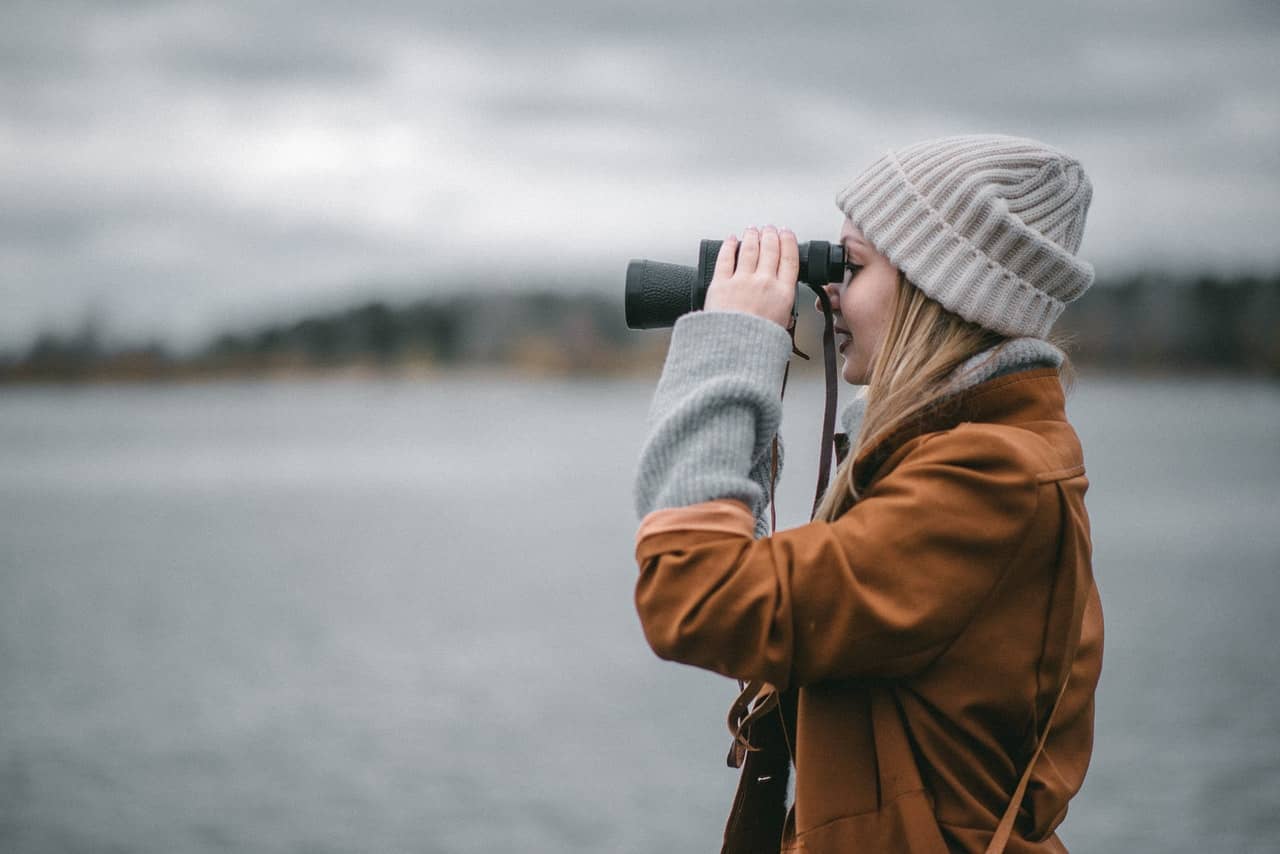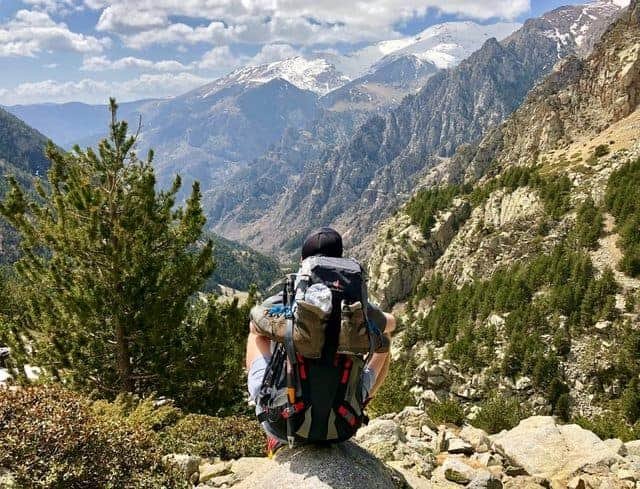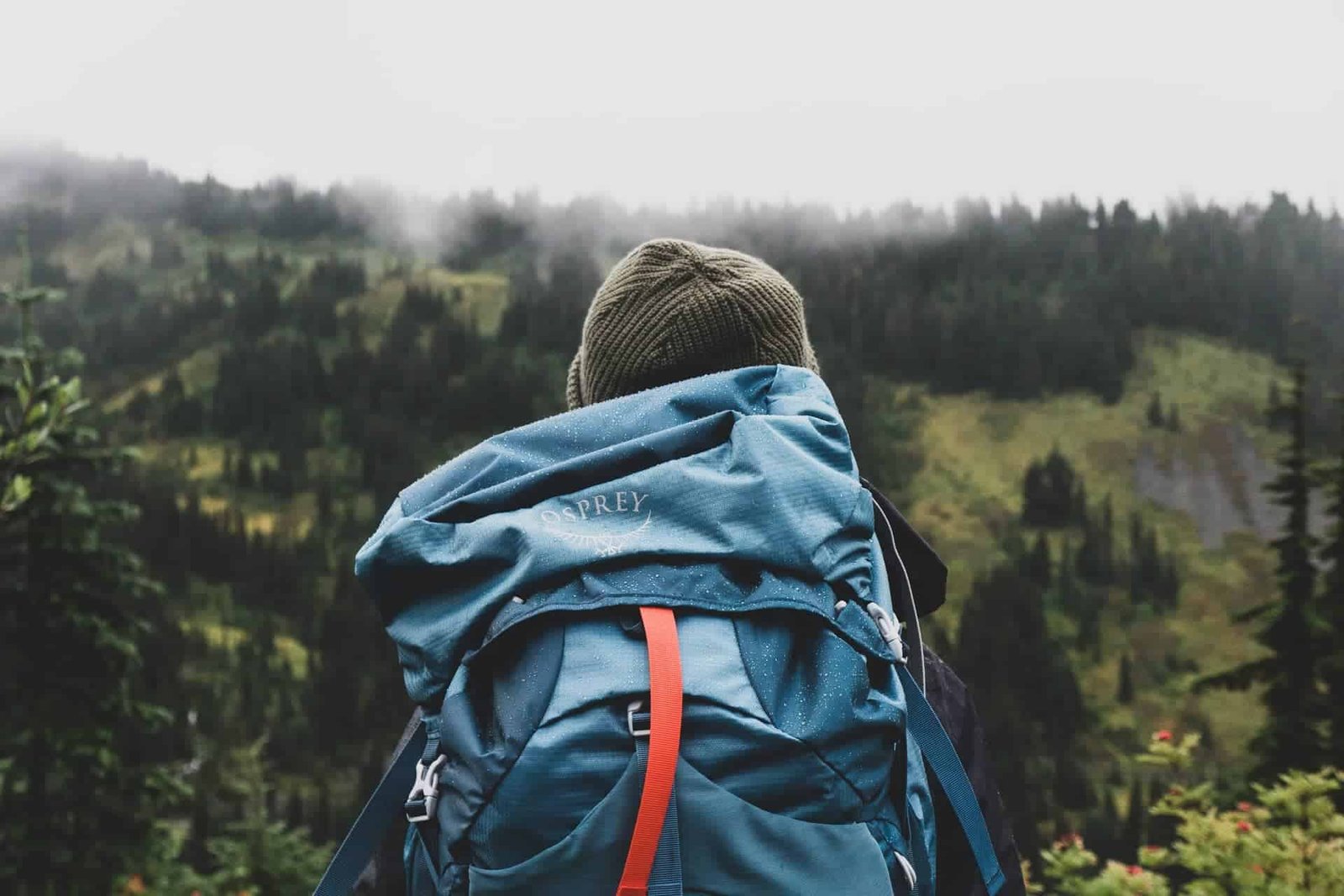It is the road less-traveled. But, if the thought of carrying an oversized backpack hiking like an adventurous hobbit is alluring, you should go for it. You should, however, know that it will be tough. The jitters are normal. At some point, you will wish you never got started. However, at the end of every hike, you’ll appreciate your decision to take up solo hiking.
First things first, why are you taking on solo trips? From the experiences of those who’ve gone through the trail before you, the benefits of this include:
Benefits of Solo Hiking:
A quick view list of benefits:
1. Spiritual growth and health
2. You’ll face your fears head-on
3. An opportunity to gain outdoor skills
4. It is flexible
5. You are one with nature
6. You can challenge yourself
7. Shedding extra pounds
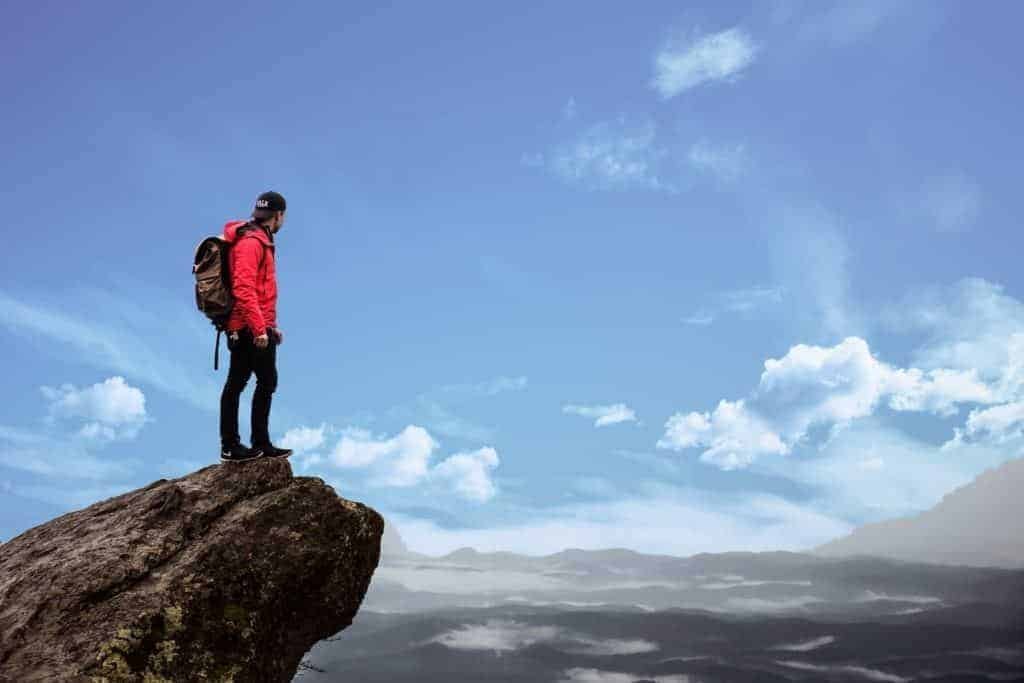
Spiritual growth and health
Solitude is the biggest driver for solo hikers. When alone on the trail, you have uninterrupted time for relaxation and self-examination. You’ll meditate, contemplate and zone out without. This lets you connect with your inner self and nature. It brings out spiritual awakening as well.
You’ll face your fears head-on
Are you afraid of being alone, heights, wild animals, storms, insects or darkness? Go for a solo backpack. Whatever your fear is, just face it alone.
An opportunity to gain outdoor skills
Being alone means figuring out how to survive in the wild. So, pack all the essential survival items and get ready to explore. Along the way, you will learn new things, and you’ll be able to save yourself and others in the future.
It’s flexible
Being part of a hiking team means following their schedule. As a solo hiker, you can change your schedule. You can walk faster, slower, and pick a camping location. Finally, you get to take breaks as often as you wish to.
You are one with nature
Besides meditating and self-exploration, solo hikes let you breathe and drink in nature. You can watch birds and wild animals without worry. You can look at the skies and just be one with nature. Also, you don’t have to speak out loud with plants, unless you want to!
You can challenge yourself
Personal growth and development are all about challenging yourself. Can you hike faster? Do you have the necessary level of endurance? Can you handle storms and uncomfortable weather? Taking up challenges is the best way for you to become better and stronger.
Shedding extra pounds
You can look at these trips as a way to becoming fitter. You will most definitely shed some pounds and become physically fit with every trail you take.
So, yes, take on backpacking alone for soul searching, strength, stamina, weight loss, and for the simple satisfaction of being able to do it!
Personal safety for solo hikers
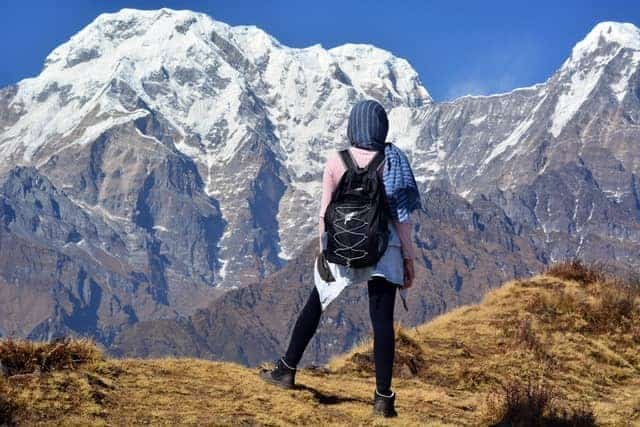
Besides it having immense benefits, it isn’t accident-proof. Anything can happen on the trail. So, how do you stay safe? You may learn here.
Be ready
Your readiness determines how well or badly you will handle this challenge. Ask yourself this, “how much can I handle?”
Start small
You cannot start with the Appalachian. In as much as you’d like to go far fast, start with a day-long hike then go on from there. Also, determine how long the hikes take.
Know the terrain
You don’t have to physically review the trail; Googling and asking other hikers is a good place to start. Read the maps too for information about the height and the type of vegetation in the area.
Check-in
Now, this is critical. No radio silence when hiking alone. A quick text to your family or friends, every once in a while is important. Communication makes the difference between peace of mind and an emergency search and rescue. Hence, better equip yourself with a long-range two-way radio.
Check the weather reports
The weather forecasts may be wrong. However, knowing if you’ll be in a storm or you’ll bathe in the sun determines your safety and comfort.
Stick to one busy trail
A busy trail because you can talk to people and also because you can get into an accident. Sticking to one trail/ path ensures that you don’t get lost or disoriented.
Get ample supplies
Whether you are hiking for a day or not, pack enough layers, blister plasters, and food. The rule applicable here is prioritizing.

Checklist for a solo backpacker
- First and foremost, you will need the best backpacking backpacks.
- What to wear while hiking.
- Shoes – get the right shoes. You can wear sneakers, Vibrams or hiking boots. The nature of the trail should guide this.
- You should also pack socks, hiking pants, hiking shirts, a jacket and a hat.
- You also need a fully-charged cell phone with handy outdoor apps like GPS, and distance trackers. A power bank or a solar charger is also a good option.
- Also, carry a camera, a book, bug spray, sunscreen, and first aid.
- Throw in sunglasses, a pocket knife, a reliable multi-tool, and enough backpacking food.
- Carry enough snacks, fruits, water and some protein.
What kind of route to select for hiking alone.
As mentioned above, you must always take a busy route. In as much as you seek solitude, human interaction will keep you sane and safe. In the event of an accident, other hikers will easily find you and get you help. Also, if you get lost, you will be found faster.
When in the hiking trails, adhere to trail directions and avoid dangerous parts if warned.
Pros
- You get to test your outdoor skills
- You have flexibility
- This trip challenges and pushes you
- It is important for soul-searching and spiritual growth
- No doubt, this activity is satisfying
- You will make new friends
- It is healthy, and you will lose some weight
- No doubt, it is important for self-exploration
- It builds strength and stamina
Cons
- Be careful, you may get injured and have no one to help you out
- You may not have sufficient equipment
- You could get lost
- Poor preparation.
Final Verdict
Being a solo hiker is as exhilarating as it is scary. Being alone in the wilderness isn’t the normal human thing to do. However, being outdoors doesn’t just make you adaptable, you also gain new perspectives about life and living. Hiking in itself makes you mentally and physically strong. It feels great to achieve a goal. You will make new friends. So, instead of explaining to people why you are going alone, ask this instead, why not? Further, for more solo backpacking tips you may refer Washington Trail Association site.
Now that you are ready for your first solo hike, do these
- Create a perfect hiking playlist
- Try urban hiking (tall buildings)
- Make your experience better by aiming for the high ground, always!
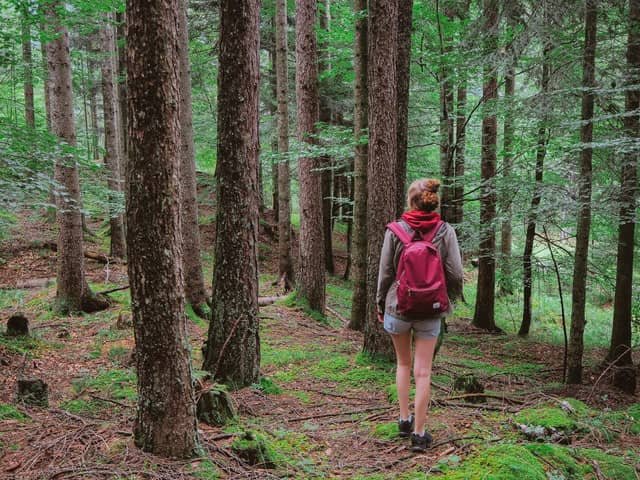
Few FAQs related to hiking alone:
Below are detailed answers to FAQs associated with hiking alone:
Why should you hike alone?
Hiking alone feels amazing on a safe trail. You take in amazing nature and views while testing your endurance.
Is solo backpacking safe?
It is safe. In spite of that, solo backpacking could be dangerous if you let down your safety. Nonetheless, you can still have a worry-free experience with proper risk management, sufficient preparation, and sticking to your limits.
Is hiking solo dangerous?
This depends on where you’re hiking. Some trails are safe to hike alone and some that aren’t. It’s important to do ample research before setting out alone. Before proceeding for a solo hike, go through this trail safe training program by NPS, it will be useful.
What essentials do you need to hike alone?
You need your hiking backpack packed with essentials. On top of that carry a hiking GPS and hiking watch to help you with direction. This comes in handy, especially on a new trail.
Is it OK to go hiking alone?
Generally, it is not advisable to hike alone. Nevertheless, one would still argue that hiking alone has its own advantages. On the flip side, hiking alone comes with its own back draws mainly relating to safety. If you plan to hike alone, ensure the prospective spot is not dangerous. Additionally, let someone else know where you plan to explore. Plus, you need to carry a phone, whistle, or any gadget that can be used to seek help if things go south.
How do you avoid wild animals while hiking?
To begin with, it is vital to study the trail keenly and learn if there is any animal threat present. Besides, hike in a group. In a like manner, if you are a solo hiker, avoid headphones. This way you can know when animals are approaching. Moving on, make noise to scare them away. Also, avoid hiking in the wee hours of the night as well as at dust or dawn. Most importantly, back away slowly whenever you run into wild animals unknowingly.
Does hiking help you lose weight?
Indeed, hiking is a very efficient way to shed some weight. Through walking and tackling challenging terrain, you are bound to burn more calories.
How do I increase my stamina for hiking?
Do some running or walking to boost your endurance. Likewise, try weight training to build your strength. Aside from that, try hill intervals and work on your breathing technique. Finally, work on your mental toughness.
Disclaimer
All the information displayed on this article is in good faith and is exclusively meant for educational purposes. Under no circumstances should the images, graphics, texts, and other materials created by this article be perceived as medical treatment, diagnosis, or instruction. Only seek professional medical advice from a qualified physician concerning any medical condition.
Always, consult your physician or a qualified medical professional for exact information before making a decision on changing your lifestyle or diet depending upon the information given on this article.

